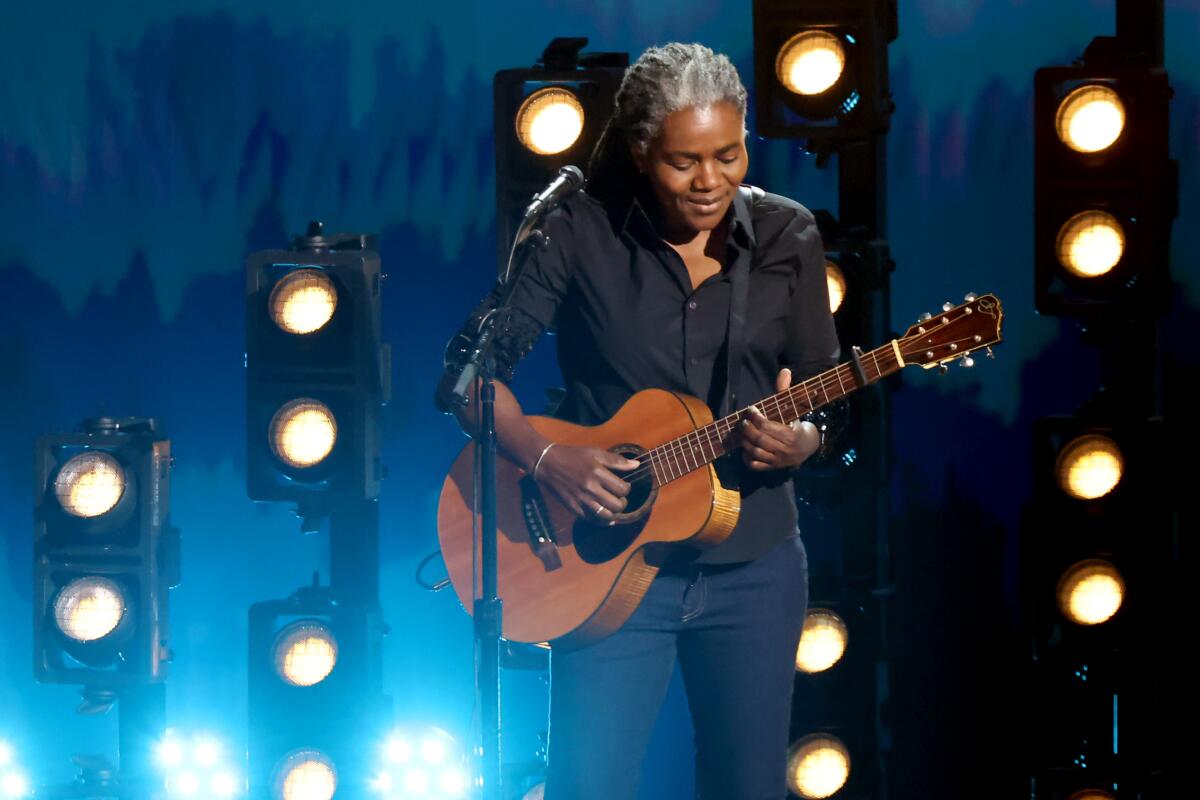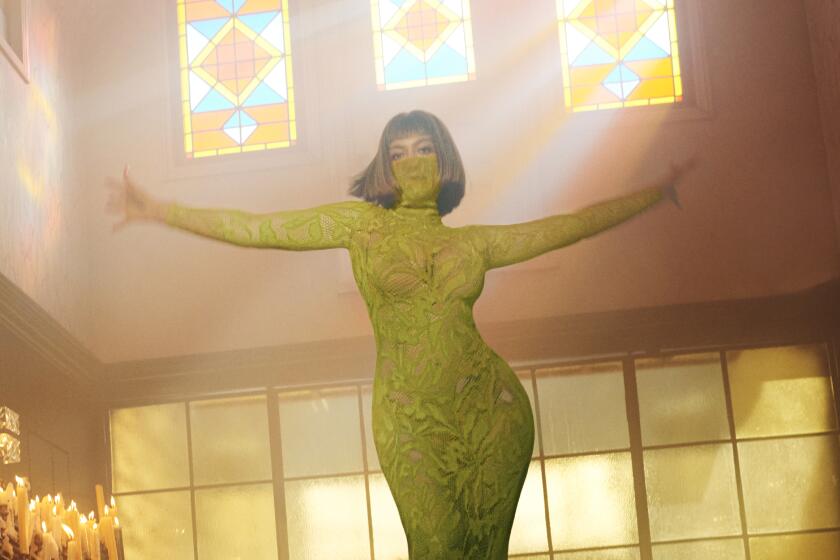Tracy Chapman’s gray hair represents a lifetime of authenticity

- Share via
Sunday’s duet between Tracy Chapman and Luke Combs at the Grammys brought us one of those rare moments in today’s America in which appreciation was louder than criticism. From the illuminating joy on her face to the admiration on his, we were once again reminded of music’s undeniable ability to turn strangers generations apart into sisters and brothers … if only for a song.
Opinion Columnist
LZ Granderson
LZ Granderson writes about culture, politics, sports and navigating life in America.
It has been 35 years since Chapman first performed “Fast Car” at the awards show. We lived in a very different world then. For context, neither Taylor Swift nor Travis Kelce was alive when it happened. Neither was Combs.
Here’s another way to measure how long ago 1989 was: Among the other performers that year were Whitney Houston, Luther Vandross and Melissa Etheridge — all queer, none openly so at that time. George Michael, who won album of the year for “Faith” that year, was outed almost 10 years later.
Read our complete coverage of the 2024 Grammy Awards, including the night’s top winners, an unforgettable In Memoriam segment, Taylor Swift’s new album and more.
And in the midst of all that 1980s glamour stood an unassuming newcomer, a storyteller with dark skin, little to no makeup, short locs and a guitar. Chapman never announced her sexuality — her onetime lover, the author Alice Walker, did that for her in 2006 — but she never pretended to be anything other than the queer Black woman she was.
That’s not intended to throw shade at the closeted members of the LGBTQ+ community who were part of that night’s festivities (it’s not like I was out back then either). But in order to properly give Chapman her flowers for Sunday’s performance, we must acknowledge the environment in which her story began.
Tracy Chapman and Luke Combs’ cross-generational pairing on ‘Fast Car’ during the 2024 Grammy Awards has given Chapman’s 1988 song another boost on the charts.
The queer love in Walker’s “The Color Purple” was controversial when the novel was published in 1982. It was controversial when the film by the same name was released in 1985, and sadly, the 2023 musical was also met with pushback because of the love between Black women on the screen. And Chapman, who turns 60 next month, has been her authentic self, performing onstage through it all.
The only noticeable difference throughout those years has been the color of her hair, which glistened Sunday underneath the Crypto.com Arena’s lights. The jet-black hair of yesteryear now adorned with the gray she has earned.
The star has won 28 Grammys, more than any other woman, yet has never captured the most prestigious category. Could this be her year?
What does it mean to age gracefully?
I’ve been trying to answer that question ever since my only child graduated from high school nearly a decade ago. On that Grammys stage, Chapman provided us all an answer. It’s not about accepting getting older; it’s about embracing age with gratitude. That’s what we witnessed in her smile during the opening moments of her performance with Combs — gratitude.
Gray hair is often characterized as an intruder that must be removed while wrinkles are considered deformities in need of repair. Especially in the entertainment industry. Especially in L.A. The urge to dye our hair in an attempt to ward off Father Time is a temptation that can be difficult to resist. For years I gave in, not wanting to look my age even though I’ve also been trying to live a long and healthy life — talk about a contradiction.
And there stood Chapman, just as authentic today as she was 35 years ago when we first heard her name and listened to that song. Whitney, Luther and George are no longer with us. Melissa survived cancer. All reminders that life is fragile. Life is short. Too short to spend pursuing what we once were or what others think we should be. Too short to sacrifice who we really are or becoming what we are meant to be.
Because Chapman was her authentic self — folk, Black, queer — she connected with a straight white country artist from a small town in North Carolina. And together they created the most talked-about moment of their industry’s biggest night. They did it not by avoiding what made them different but embracing it. All of it.
More to Read
A cure for the common opinion
Get thought-provoking perspectives with our weekly newsletter.
You may occasionally receive promotional content from the Los Angeles Times.














